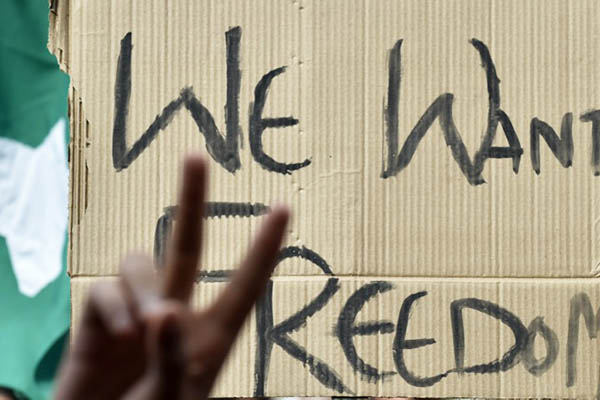
File photo. Sajjad Hussain—AFP
Pakistan and India must normalize ties to solve the unsolvable problem
Pak-Indo relations have been haunted by Kashmir, a disputed territory between the two states. On the Indian side, the Jammu & Kashmir region has a Muslim population that has suffered over the area’s “special status.” There was a time when the world supported the U.N. Security Council resolution calling for plebiscite in Kashmir but that was during the period of the Cold War.
India and Pakistan have fought wars that Islamabad was unable to win. They signed the Simla Agreement in 1972 and the world began calling for the two to sort out the issue bilaterally and forgot the plebiscite resolution. Pakistan got on the wrong side of the world by resorting to sending “freedom fighters” into Kashmir. The world now equates any and all fighters in Kashmir with terrorism and sides with the status quo. The latest round of atrocities in the Valley started after Hizbul Mujahideen commander Burhan Wani was shot in 2016.
Pakistan was told it couldn’t use terrorism to resolve the Kashmir dispute but it didn’t listen. Today it has problems with its own homegrown terrorists. The world is squarely behind India because it is scared of Pakistan-based terrorists. The 9/11 assault in the United States was planned in Pakistan. Vulnerable-to-terrorism territory is increasing in Pakistan, which is now also used preemptively by India. There are negative U.N. resolutions that Pakistan must keep in mind and also think hard about the daily cross-border rocket fire from the Indian side that kills its civilians.
Pakistan can get out of this predicament by “normalizing” relations with India, beginning bilateral talks without front-loading the Kashmir dispute. This realization has dawned on elected governments but the Pakistan Army doesn’t allow this normalization. As result, Pakistanis are doomed to see their politically unstable country getting isolated globally and regionally as India rises to the status of a big power. The “cause” languishes in Pakistani textbooks.
